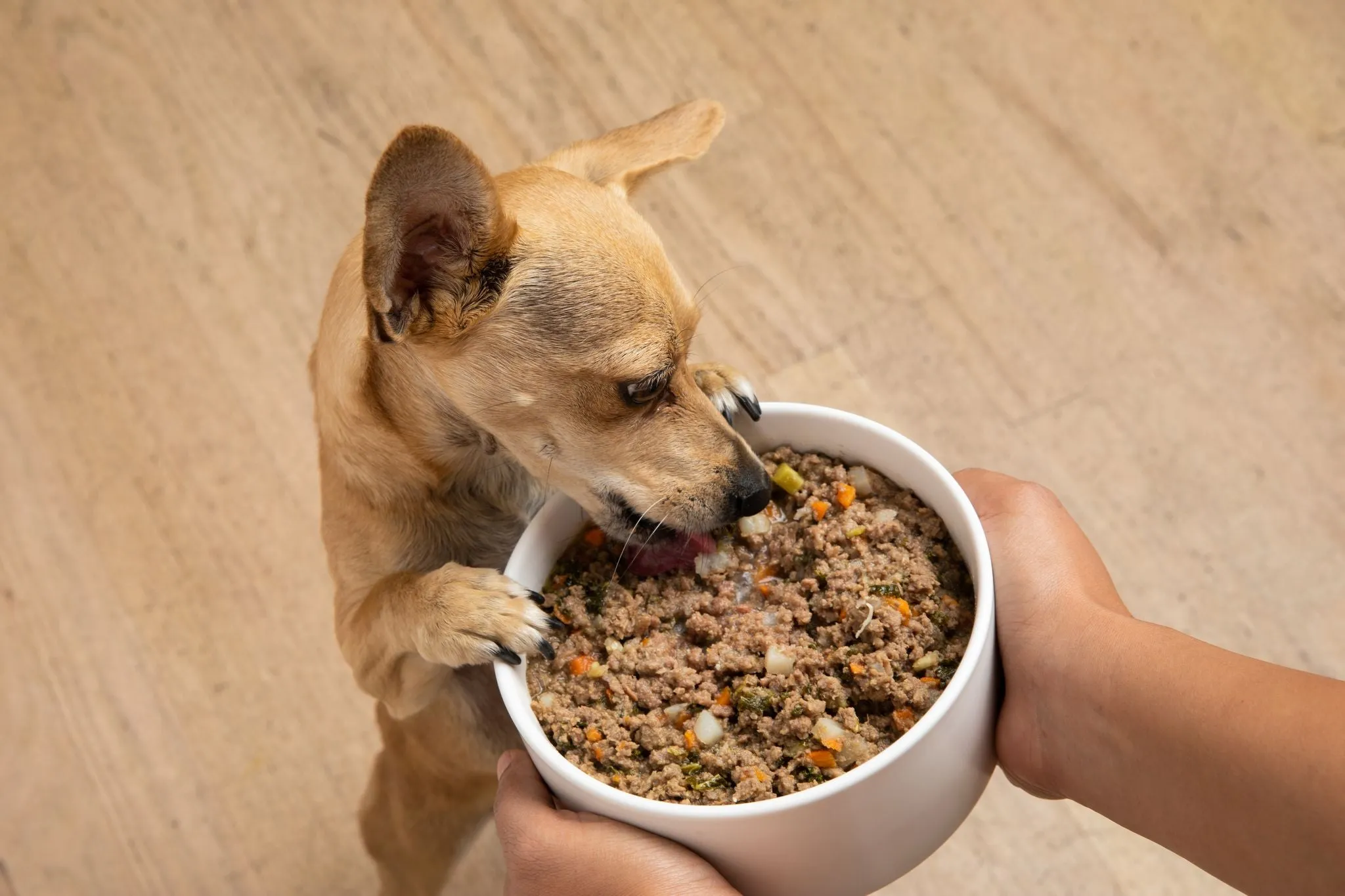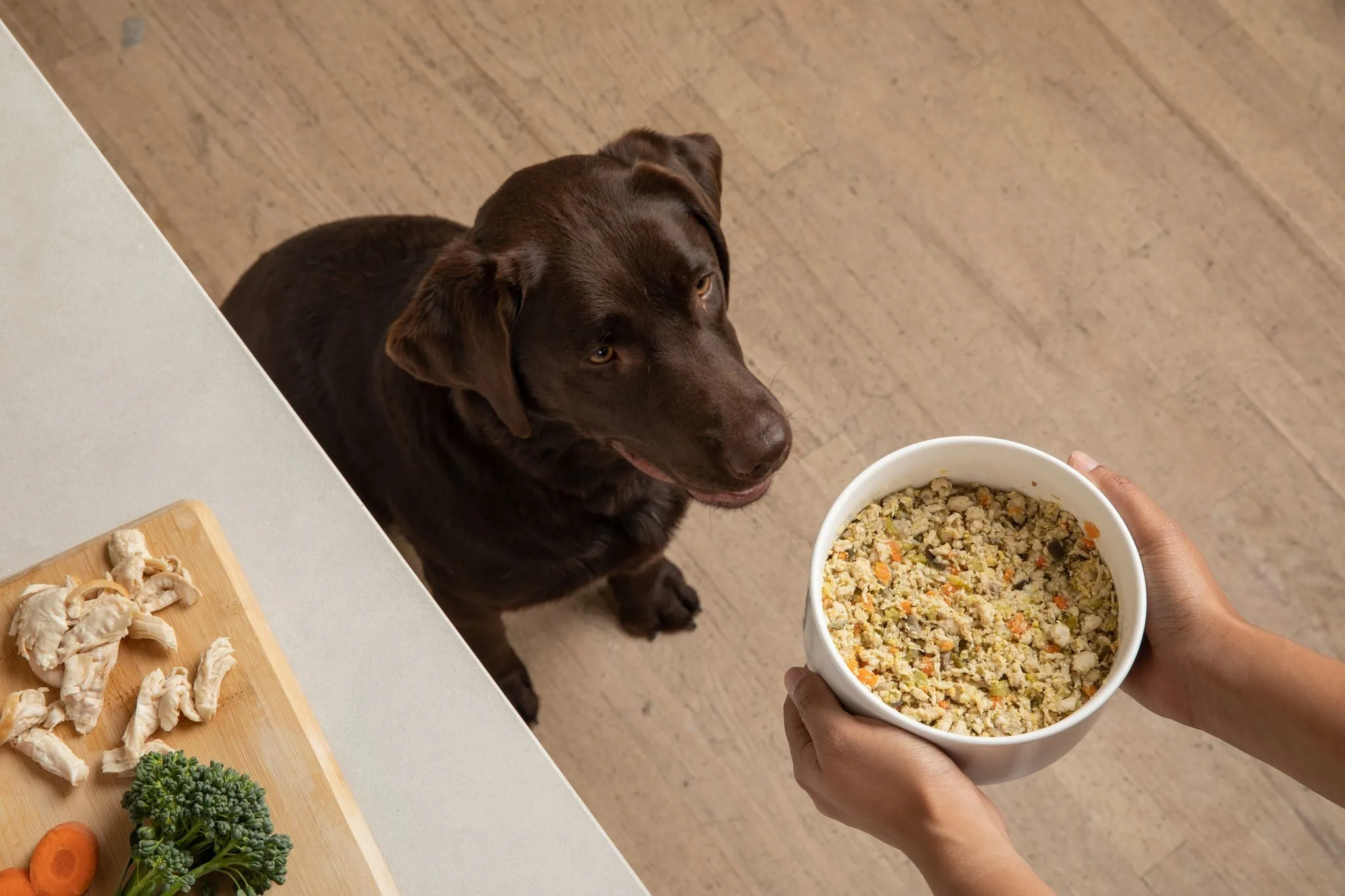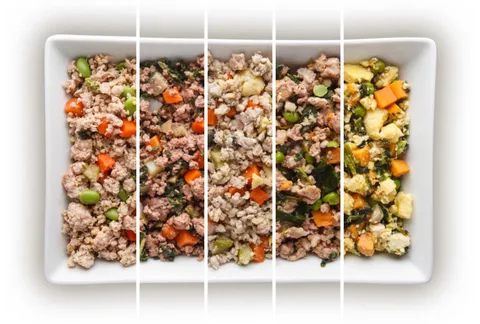Receiving a diagnosis of kidney disease for your beloved canine companion can be a deeply concerning and overwhelming experience. This formidable adversary often approaches stealthily, and its management can be complex. As a dedicated pet parent, your primary goal is to alleviate their discomfort and restore their playful spirit. You’ve likely heard about the profound impact of diet and may be exploring vet-approved homemade Dog Food Recipes For Kidney Disease, seeking a way to provide the best possible care.
You’ve come to the right place. This guide will meticulously explain the critical role of diet for dogs with kidney disease, walk you through the process of feeding a homemade renal diet, and introduce a simpler, scientifically backed alternative for providing your pet with optimal kidney support.
Understanding Canine Kidney Disease
Kidney disease is a life-altering condition that significantly affects your dog’s well-being. A clear understanding of this condition is the first step towards effective management. Your dog’s kidneys are vital organs, diligently filtering waste products from the blood, regulating blood pressure, and assisting in the production of essential hormones and red blood cells. When kidney disease strikes, these crucial functions can be compromised, leading to a cascade of health issues that diminish your pet’s quality of life.
Types of Kidney Disease: Acute vs. Chronic
Canine kidney disease typically presents in two forms:
- Acute Kidney Disease: This form of kidney failure manifests suddenly, often triggered by the ingestion of toxic substances like antifreeze, certain medications, or poisonous plants. It necessitates immediate veterinary intervention, and with prompt treatment, the prognosis can be favorable.
- Chronic Kidney Disease (CKD): This is the more insidious form, developing gradually over time, frequently due to aging or an untreated long-term illness. CKD is generally irreversible, but its progression can often be managed effectively with appropriate care and significant lifestyle changes, particularly dietary ones.
Common Symptoms and Early Warning Signs
Kidney disease can often be a “silent villain” in its early stages, making vigilance crucial for early detection, which is vital for effective management. Keep an eye out for these common symptoms:
- Increased thirst and urination
- Lethargy or depression
- Loss of appetite
- Weight loss
- Bad breath with a chemical odor
- Vomiting and diarrhea
- Blood in urine
Remember, these symptoms can also indicate other health issues, so consulting a veterinarian for an accurate diagnosis is paramount.
Diagnosis and Testing Procedures
If you suspect your dog might be suffering from kidney disease, immediate consultation with a veterinarian is critical for a thorough evaluation. This typically involves a series of diagnostic tests:
- Blood Tests: A Comprehensive Metabolic Panel provides crucial insights into kidney function, particularly through levels of creatinine and blood urea nitrogen (BUN).
- Urine Tests: A urinalysis can determine how effectively the kidneys are filtering waste products.
- Ultrasound or X-ray: Imaging tests allow veterinarians to visualize the kidneys and surrounding areas, helping to identify any abnormalities or blockages.
Once a diagnosis is confirmed, you and your vet can develop a treatment plan, which may include exploring vet-approved homemade dog food recipes for kidney disease or opting for specialized commercial diets. Neglecting kidney disease can lead to irreversible damage, a significant decline in your dog’s quality of life, and in severe cases, it can even be fatal. Dogs with untreated kidney disease often experience debilitating fatigue, lose interest in their favorite activities, and suffer from persistent nausea. Addressing this condition promptly is crucial for your dog’s happiness and well-being.
 A concerned dog sitting on a sofa, looking towards the viewer, illustrating the worry pet owners feel about their pet's health.
A concerned dog sitting on a sofa, looking towards the viewer, illustrating the worry pet owners feel about their pet's health.
The Pivotal Role of Diet in Managing Canine Kidney Disease
A thoughtfully designed diet is not merely supportive; it can profoundly slow the progression of kidney disease and significantly enhance your dog’s quality of life by mitigating uncomfortable symptoms. Indeed, for dogs with kidney disease, diet is so integral to managing the condition that many experts consider it a form of ‘nutritional medication’.
The Science Behind Nutritional Needs in Kidney Disease
When the kidneys are not functioning optimally, their ability to effectively filter waste products from the blood is compromised. This is where dietary intervention becomes paramount. A properly formulated meal plan for a dog with kidney disease typically focuses on reducing the workload on the kidneys, thereby lowering the volume of wastes they have to filter. By easing this burden, the kidneys can operate more efficiently, even with impaired function.
Importance of Protein, Fat, and Mineral Balances
- Protein: Contrary to a common misconception, protein isn’t inherently detrimental. The key lies in quality, not just quantity. High-quality protein sources, such as lean meats, are often easier for compromised kidneys to process, resulting in fewer waste products.
- Fat: Omega-3 fatty acids, abundantly found in fish oils and flaxseeds, have shown significant promise in reducing kidney inflammation. These beneficial fats may contribute to slowing the disease’s progression.
- Minerals: Maintaining a precise balance of minerals is essential. Excessive phosphorus can exacerbate kidney disease, while carefully controlled levels of calcium, potassium, and sodium are critical for numerous bodily functions.
The Hydration Side of Things
Adequate hydration is absolutely non-negotiable for dogs with kidney disease. Healthy kidneys depend on a proper balance of water to effectively flush out toxins. Dogs with kidney issues frequently experience increased water loss as their bodies attempt to excrete excess waste through urine. This is precisely where a diet rich in moisture content can be a game-changer, significantly aiding in hydration and easing the burden on compromised kidneys.
 A dog happily eating from a bowl, highlighting the importance of a palatable and suitable diet for pets with health conditions.
A dog happily eating from a bowl, highlighting the importance of a palatable and suitable diet for pets with health conditions.
Homemade Dog Food Recipes for Kidney Disease: Pros, Cons, and Examples
Many pet owners believe that taking control of their dog’s diet, especially when facing a serious condition like kidney disease, means committing to a purely homemade regimen. While the idea of knowing exactly what goes into your dog’s bowl is appealing, the reality of feeding homemade food for dogs with kidney disease is far from simple. Let’s explore the benefits, challenges, and some example diets, keeping in mind that conditions like pancreatitis also require careful dietary consideration, as explored in articles like what can i feed my dog with pancreatitis.
The Benefits of Feeding Homemade Food for Dogs With Kidney Disease
Creating your pet’s meals from scratch offers the undeniable advantage of meticulous ingredient monitoring. You gain the ability to precisely adjust protein levels and manage phosphorus and sodium content—all crucial considerations for a kidney-friendly diet. Furthermore, preparing homemade meals allows you to avoid the artificial additives commonly found in commercial dog foods, offering greater peace of mind.
Example Vet-Approved Homemade Dog Food Recipes for Kidney Disease
Here are three example vet-approved homemade dog food recipes for kidney disease, keeping in mind that nutritional balance is key.
Example Diet 1: Chicken and Rice
This is a simple recipe, but achieving the correct nutrient balance is paramount. Lean chicken provides protein, but care must be taken to avoid excess, which can strain the kidneys.
Ingredients:
- 2 cups boiled chicken (low sodium, shredded)
- 1 cup cooked white rice
- 1/4 cup carrots (steamed and mashed)
Preparation:
Boil the chicken without adding salt. Cook the rice separately. Steam the carrots until soft and mash them. Mix all ingredients together once cooled and serve.
Example Diet 2: Beef and Veggies
Lean ground beef offers another protein source, again with moderation being essential. The chosen vegetables are low in phosphorus, but the overall nutrient profile still requires careful consideration.
Ingredients:
- 1 cup ground beef (lean, cooked)
- 1/2 cup zucchini (steamed and diced)
- 1/2 cup squash (steamed and diced)
Preparation:
Cook the ground beef in a non-stick pan until thoroughly browned, draining any fat. Steam the zucchini and squash until tender, then mix them with the beef.
Example Diet 3: Fish and Sweet Potato
This is a very straightforward recipe. Fish provides beneficial omega-3 fatty acids, which possess anti-inflammatory properties. However, it’s crucial to note that certain types of fish are high in phosphorus, which can be detrimental in a kidney disease diet for dogs.
Ingredients:
- 1 cup salmon or cod (cooked and flaked)
- 1 cup sweet potato (boiled and mashed)
Preparation:
Cook the fish thoroughly, ensuring all bones are removed. Boil the sweet potato until very soft, then mash it. Combine the two ingredients for a complete meal.
Why Creating and Feeding Homemade Dog Food for Kidney Disease May Not Be Right For You
While the appeal of control and peace of mind when feeding your pet homemade food for dogs with kidney disease is undeniable, there may be a more sustainable and nutritionally consistent approach.
Consider these reasons why a pre-formulated, specialized diet might be a better choice:
- Time-Consuming: Preparing fresh, balanced meals daily or even weekly represents a significant time commitment.
- Nutritional Balance: Achieving and maintaining the precise balance of nutrients required for kidney disease is both an art and a science, often demanding regular veterinary consultations and potentially costly adjustments.
- Cost: High-quality, human-grade ingredients suitable for a renal diet can often be more expensive than premium commercial dog food specifically formulated for kidney support.
- Consistency: Dogs with kidney disease require a consistent diet to stabilize their condition. Deviations are easy when preparing food at home, which can inadvertently affect their health.
Given these challenges, exploring specialized commercial diets designed for kidney support can save you time and provide a greater guarantee of nutritional balance.
A Simpler Solution: Chi Dog’s Water Diet for Kidney Support
You’ve considered the intricacies and potential anxieties associated with preparing homemade dog food for kidney disease. You’ve weighed protein percentages, contemplated the costs of lean meats and fresh vegetables, and perhaps felt the pressure of ensuring everything is perfectly balanced. This is a common and understandable concern for pet parents, particularly for owners of small breed dogs who might have specific dietary needs.
We understand these challenges. Crafting a tailored, nutritionally balanced diet for a pet with kidney issues is a considerable undertaking, and even a minor oversight can inadvertently worsen your pet’s condition. This is precisely why Chi Dog’s Water Diet can be a transformative solution for both you and your cherished companion.
Why Chi Dog’s Water Diet Is an Optimal Choice For Your Pet
The Chi Dog Water Diet is far from an average commercial dog food; it’s a holistic, therapeutic diet grounded in both modern nutritional science and the ancient wisdom of Traditional Chinese Medicine (TCM). Like all Chi Dog’s holistic dog food options, it is meticulously crafted to address a range of conditions, including food allergies, diarrhea, and, specifically, kidney support.
Its distinctive nutritional profile sets it apart:
- Crude Protein (min): 17%: This level is sufficient to maintain muscle mass without overburdening the kidneys.
- Crude Fat: 12%: This provides adequate caloric intake while avoiding the risks associated with high-fat content in compromised systems.
- Low Carbohydrate: 9%: A reduced carbohydrate load minimizes the metabolic strain on your dog’s already stressed kidneys.
Beyond its balanced macronutrients, the ingredient list is equally impressive. Featuring a blend of pork (an excellent novel protein), pearled barley, green peas, watercress, and sweet potato, each meal delivers a symphony of beneficial nutrients. These hypoallergenic ingredients make it particularly advantageous for dogs with sensitivities or picky eating habits. It’s more than just food; it’s targeted nourishment designed to bolster your pet’s kidney health while concurrently addressing other common issues like back pain, ear infections, and urinary incontinence.
From a Traditional Chinese Medicine perspective, the Water Diet is characterized as Neutral to Cooling, and it specifically targets both Kidney Yin and Qi Deficiencies. This holistic approach translates into a balanced, deeply nourishing meal that supports your pet’s overall wellness, emphasizing the kidneys’ vital functions.
All Chi Dog food is prepared in a USDA-certified organic kitchen and adheres to AAFCO nutritional guidelines, providing you with peace of mind that you are feeding your pet a high-quality, safe, and effective diet for kidney disease. The ordering and delivery process is also streamlined, ensuring your pet’s meals arrive routinely at your doorstep. This particular diet is also recognized as an effective diet for dogs with liver disease and an optimal dog IBD diet.
 Chi Dog food packaging and a bowl of prepared food, showcasing the convenience and quality of the specialized diet.
Chi Dog food packaging and a bowl of prepared food, showcasing the convenience and quality of the specialized diet.
Seamless Transition to Chi Dog’s Kidney Support Diet
Transitioning your dog from homemade meals or another commercial dog food to Chi Dog’s Water Diet is a simple, yet gradual process. This week-long staggered transition is crucial to prevent digestive upsets and allows your dog to comfortably adapt to the new nutrient balance, taste, and texture.
Beyond Diet: Holistic Support for Dogs with Kidney Disease
While a nutritionally optimized diet like Chi Dog’s Water Diet forms the cornerstone of kidney disease management, comprehensive care involves additional layers of attention and proactive measures. By integrating these practices, you can provide holistic support for your dog’s kidney health.
- Regular Vet Visits: Ongoing veterinary care is indispensable for closely monitoring your dog’s kidney function and adjusting treatment plans as necessary. Routine blood tests and urinalysis provide critical information about their condition.
- Consistent Hydration: Always ensure your dog has unlimited access to clean, fresh water. Proper hydration is fundamental for kidney function and aids significantly in flushing out toxins.
- Limited Exercise: Intense physical activity can place additional strain on compromised kidneys. Opt for shorter, gentler walks and avoid strenuous exercise sessions.
- Environmental Comfort: Stress can be detrimental for a dog with kidney disease. Ensure your pet has a quiet, comfortable, and stable environment where they can rest undisturbed.
- Medications and Supplements: Your veterinarian may recommend specific medications or supplements designed to support kidney function. Always consult your vet before introducing any new medications or supplements.
- Alternative Therapies: Therapies such as acupuncture and certain herbal remedies can sometimes complement conventional treatments for kidney disease. However, always consult your veterinarian before embarking on any alternative therapies.
- Close Observation: Maintain diligent observation for any changes in symptoms, such as increased lethargy, decreased appetite, or alterations in urination patterns. If you notice any concerning changes, contact your vet immediately.
By integrating these additional supportive measures into your pet’s routine, you will not only enhance their comfort but also significantly increase the chances of slowing the progression of kidney disease.
 A gentle hand petting a dog, symbolizing comfort and care for pets with health challenges.
A gentle hand petting a dog, symbolizing comfort and care for pets with health challenges.
Final Thoughts on Dog Food Recipes for Kidney Disease
While the concept of preparing vet-approved homemade dog food recipes for kidney disease may initially seem like an ideal solution, it often comes with its unique set of challenges. These include the significant time commitment for preparation, the constant effort required to ensure precise nutritional balances, and the ongoing need for veterinary approval and adjustments.
In contrast, Chi Dog’s Water Diet presents a vet-approved, nutritionally balanced, and highly convenient alternative specifically engineered to support optimal kidney function in dogs. With the Water Diet, you are providing your pet with more than just a meal; you are offering a meticulously crafted, kidney-supportive therapy that eliminates the guesswork and complexity from feeding your dog correctly. This allows you to focus on other aspects of their care, much like understanding the unique dietary considerations for specific breeds, which might be found in guides for the best food for french bulldog.
Why would you choose to spend hours in the kitchen, meticulously balancing ingredients, when the best nutritional support for your dog’s kidney health is just a click away? Make the informed choice for your pet’s well-being and longevity—choose Chi Dog’s Water Diet today!
